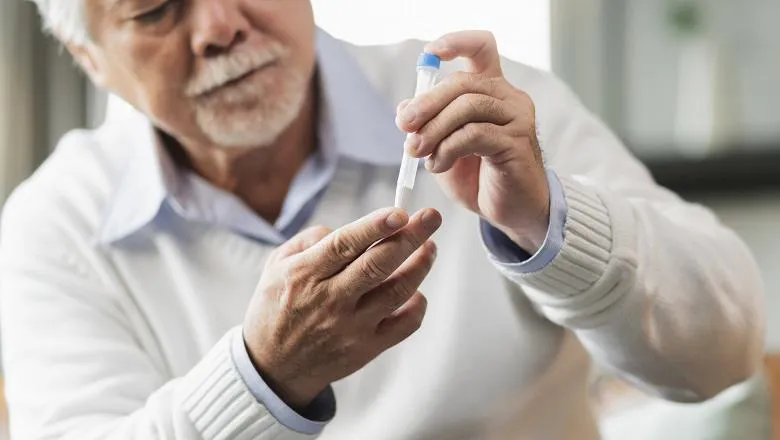Detecting early signs of dementia is key to slowing its progression. Unfortunately, a majority of those at risk are not identified in time. Our platform seeks to change this by enabling early discovery, allowing timely intervention and preventative treatment. If our project succeeds, there will be significant savings in both cost and time. We are very pleased to have such a robust team with top notch expertise spanning diverse fields, including IT, AI, medicine, aging research, and professionals from both small and large businesses.
Professor Dag Aarsland, Professor of Old Age Psychiatry at IoPPN
16 November 2023
King's College London part of €21 million PREDICTOM study to pioneer early detection of Alzheimer's Disease
A new AI-screening platform to be developed to identify individuals at risk of developing dementia, even before symptoms manifest.

PREDICTOM, led by Stavanger University Hospital working with Professor Dag Aarsland from IoPPN aims to develop a customisable biomarker screening platform to generate an evidence base for general population screening for Alzheimer’s Disease and related disorders, identifying those at high risk of developing dementia. A consortium of 30 partners from more than 15 countries ranging from academia, business, and hospitals, backed by €21 million in funding (€8 million from the EU, €9 million from industry and €4 million from UKRI), are steering the project.
With over seven million people living with dementia in the European Union, and the number projected to rise to 14 million within 20 years, the burden on healthcare systems is growing significantly both in terms of human and financial resources. Therefore, it is key that new research explores opportunities for early identification and treatment. PREDICTOM samples will be based on a pool of people from previous projects, PROTECT UK, PROTECT Norway and Radar-AD, as well as people from the catchment area of other participating centres in Germany, France, Switzerland, Belgium and Spain.
Professor Dag Aarsland, Professor of Old Age Psychiatry at IoPPN and research lead at Stavanger University Hospital is the driver behind the project.
A crucial aspect of PREDICTOM is its accessibility. Much of the screening can be performed by the patients themselves in the comfort of their own homes, again reducing strain on the resources of healthcare services. The project will collect biomarkers from more than its significant pool of participants including saliva, stool, digital markers and blood via prick-tests either at home or at their local GP, streamlining a process traditionally carried out in hospitals or specialist clinics. The samples will be sent to PREDICTOM, where their cloud-based platform will process the participant data, integrating blood, CSF, imaging, electrophysiological and digital biomarkers. Artificial Intelligence algorithms will then generate risk assessments, early diagnoses, and prognosis tools, which will lay the foundation for early intervention and treatment.
Dementia affects all areas of life e.g., in relation to health, employment, relationships and economic issues, impacting not only the person who has dementia but also their families and informal carers. It is essential that people with dementia have access to timely diagnosis and treatment, particularly as significant progress is made in the development of disease modifying drugs.
Dianne Gove, Director for Public Involvement and Ethics, Alzheimer Europe
This project is part of the Innovative Health Initiative, a public-private partnership between the European Union and the European life science industries. The EU funding is provided through Horizon Europe, while the remaining funding for this project comes from Novo Nordisk A/S, GN Hearing A/S, Health Research Institute Hospital La Fe Spain, GE HealthCare, Siemens Healthineers, Icometrix Nv Belgium, ALZpath Inc USA, University of Geneva, Altoida Ag Switzerland, Braincheck Inc USA and UK Research and Innovation.
This project has received funding from the Innovative Health Initiative Joint Undertaking, under Grant Agreement nº 101132356. This Joint Undertaking receives support from the European Union’s Horizon Europe research and innovation programme, COCIR, EFPIA, EuropeaBio, MedTechEurope and Vaccines Europe.
PREDICTOM is at the forefront of revolutionising dementia detection, leveraging AI and decentralised screening to enable early intervention for people at risk of developing Alzheimer’s disease.
For more information please contact the IoPPN Communications Team.


